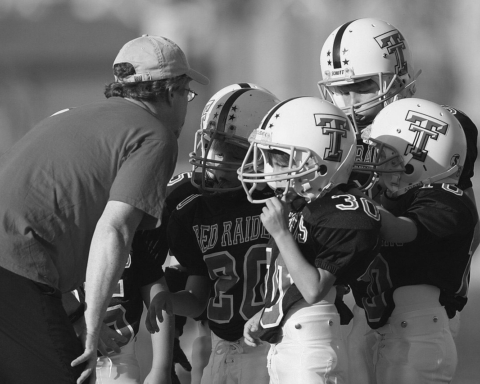BY JONNY WALKER, SPORTS ASSIGNMENT EDITOR
Media and fans often dehumanize athletes while attempting to idealize sports accomplishments — to the benefit of no one.
Star athletes, like all public figures, essentially lead two lives.
First, there’s what they show the world. Fans and media form opinions on players’ characters and personalities through heavily publicized gameday action. Add to that what players choose to post on social media.
However, that only paints half the picture, at best.
Athletes, like all people, have personal lives. Fans and media rarely have access to whom these players are behind closed doors. Somehow, they justify making character judgments based on incomplete information.
Media and fans try to shove athletes into pre-defined boxes. They like to manufacture heroes and villains, legends and has-beens, gods and mortals. Forcing athletes into archetypes to fit a narrative is not just unfair to them — it’s inhumane.
Denying athletes the right to have their worthiness judged by their actions, words and emotions — the things that make them human — degrades their status as people.
Consider political commentator Laura Ingraham telling LeBron James to “shut up and dribble” after he criticized then President Donald Trump. The idea that athletes could use their platform to express political opinions appalled many — as if athletes aren’t also people with emotions.
Marketing initiatives by major sports organizations prop star players up on pedestals. From a young age, sports consumers are exposed to this idealization of athletes, built mainly upon in-game performance.
Many children come to idolize their favorite athletes this way. But when the athlete inevitably fails to live up to the unrealistic, idyllic version of himself that child dreamt up, it hurts him, too.
Consider the legacy of Michael Jordan.
Fans and media elevated Jordan to a mythological status. Media echoed Larry Bird’s sentiment that Jordan was actually “God disguised as Michael Jordan” after scoring 63 points in a playoff game. Nike emblazoned an entire generation of sports fans to “be like Mike.”
Jordan was dehumanized — not in an overtly degrading way like James — but in a way that glamorized his actions, his words and his emotions by virtue of his on-court accomplishments.
A generation of sports fans indoctrinated to idolize Jordan grew up with warped notions of integrity. Widespread reverence for Jordan taught us that professional success justifies otherwise deplorable character traits.
Discussions of Jordan’s legacy resurfaced in 2020 following the release of “The Last Dance,” a 10-part documentary depicting Jordan’s final championship run. Citing Jordan’s six championships, sports commentators dismissed everything from punching a teammate in the face to alleged drinking and gambling addictions.
Don’t forget: They’re not just names on a jersey and numbers on a stat sheet. They’re people, too. Acting otherwise hurts them and, ultimately, you.
walkerjc20@bonaventure.edu








